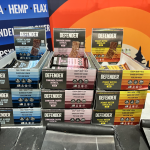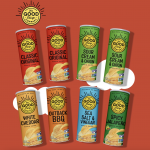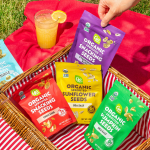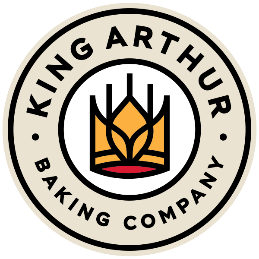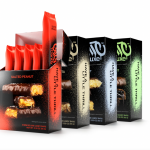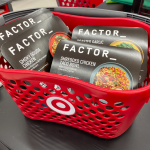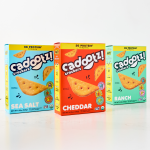Acid League Closes Round, Seeks to Reinvent Center Store Staples
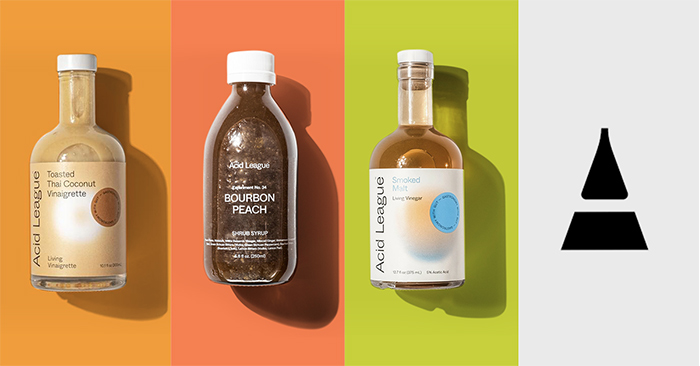
Last week condiment and beverage brand Acid League announced it had closed $4.75 million in funding — capital the brand says will help it expand its omnichannel sales and marketing strategy as well as continue the company’s push into new categories.
The round was led by InvestEco Capital and BrandProject and marks the first capital Acid League has raised. Until now, the company was personally financed by co-founders Scott Friedmann, Cole Pearsall, Allan Mai and Rae Drake.
Friedmann initially developed the idea for Acid League after brewing vinegar in his home as a hobby. Formerly the founder and CEO of Idea Couture, a food innovation consulting firm for the likes of Starbucks, Pepsi, Conagra and Tyson, he had no plans to return to the CPG space, he said. But the opportunity was too great and Acid League was born in early 2019.
The idea, Friedmann said, was to create a platform of acid-based food and beverage products, while simultaneously embracing a strong design aesthetic. In mid-2019 with no website or even commercialized product, Whole Foods committed to bringing the brand’s vinegars into all stores nationwide. The team then spent 10 months building out a plant near its headquarters in Toronto, Canada, debuting in Whole Foods in August 2020. In February 2021, the retailer added the brand’s vinaigrettes and a fish and chips sauce.
“It was bizarre,” Friedmann said. “We went from literally not having a website to being on every Whole Foods shelf and beyond in very short order,” Friedmann said.
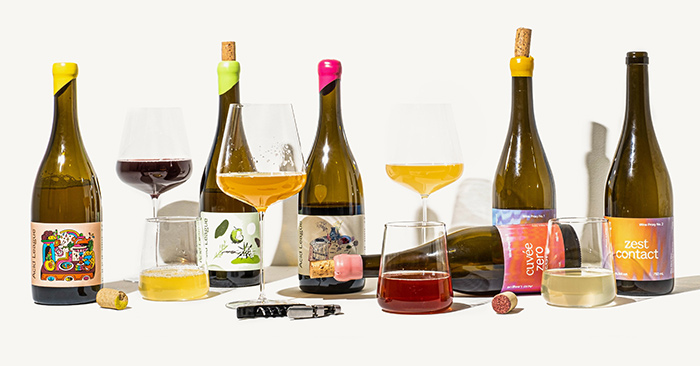
Sales have continued to grow rapidly ever since. Though Friedmann declined to confirm exact figures, he said the company is “very quickly” approaching “eight digit territory” for revenue. While its products are sold in only roughly 800 U.S. stores and 150 Canadian stores, The Fresh Market, Safeway and Loblaws are all expected to come online in the near future.
While retail is a key part of the revenue strategy, so too are innovation and direct-to-consumer sales. In January of this year the company launched its most significant expansion with Wine Proxies, a non-alcoholic wine alternative. Sold as $70 for three bottles, the brand launches three new offerings every month.
Beyond Wine Proxies, Acid League launches one new limited offering exclusively online roughly every week, he said. On its website, the company now sells hot sauces, pickles, shrubs, small-batch cooking vinegars, and cocktail vinegars. The expansion has only been possible because Acid League owns its own manufacturing process, he added.
“Initially it started as a marketing strategy. If we’re making 100 of something a week, we thought ‘that’s our content story,” Friedmann said. “What we realized was that it wasn’t just marketing content, there was this voracious interest in upgrading the whole pantry…What started as a marketing strategy, became a broader D2C strategy.”
Acid League’s direct to consumer items often have a higher price point then the ones sold in retail, and the brand can also experiment with more unusual flavors or niche product offerings, he added. The items are sold individually or as part of subscription packages or tasting kits.
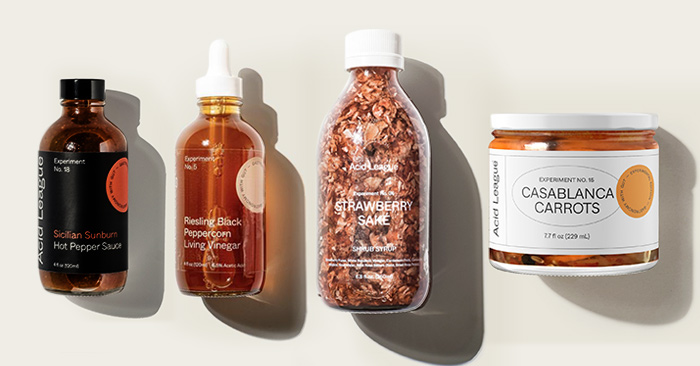
In brick and mortar, he said, the company tends to stick with more “straightforward” SKUs in the “places you’d expect to find us.” The brand is still premium priced in retail, with a $7.99 to $9.99 MSRP in most stores, but retailers are eager for “mass premium” products that can create a top-shelf effect in stores. There’s a benefit to both channels, he said.
“The velocity of retail allows us to do what we’re doing online, and the margins online help us grow the business,” Friedmann said. “It’s an ecosystem.”
Despite the rapid pace of new products, Acid League doesn’t plan to slow down just yet. One pain point the company plans to address is balancing slower turn items (such as vinegars) with the launch of more quick turn products. Wine Proxies and shrubs were the start of this strategy, and other beverages are in the works.
In June Acid League will launch Damn Good Drinking Vinegars, a multiserve bottle of vinegar that it previously tested in limited release. The goal, Friedmann said, was to create a drink that was just as much about taste as gut health benefits. Over time, other products will follow.
“There is almost no lower velocity category in the supermarket then vinegar, honestly… but we always knew that,” Friedmann said. The strategy has always been to permeate the center of the store with acid based innovation…ultimately it’s about SKU proliferation.”
